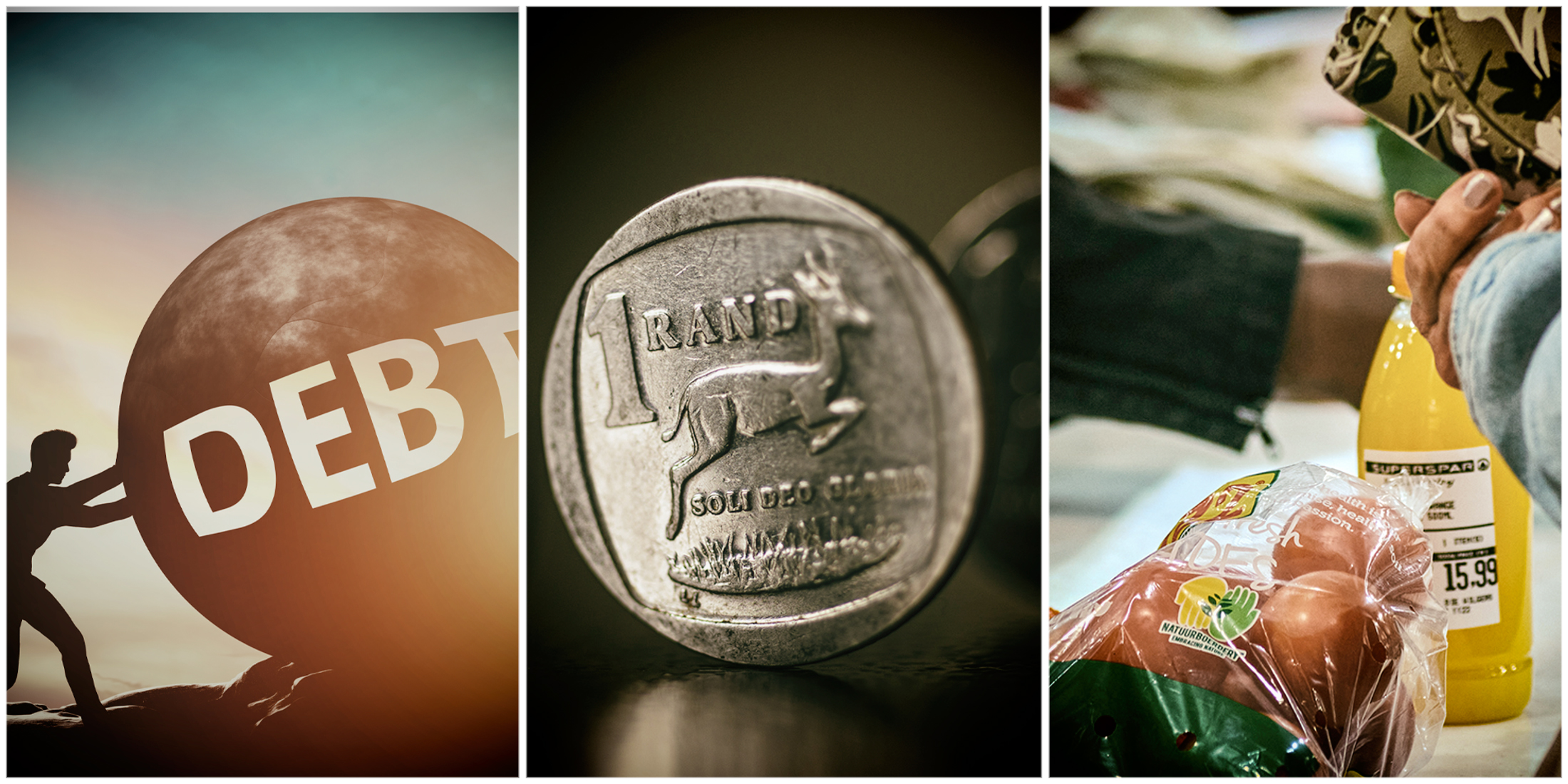Three absolutely key indicators were revealed today in the Medium Term Budget Policy Statement: GDP growth, tax income and the anticipated level of debt. All three were disappointing.
Finance Minister Enoch Godongwana did increase anticipated GDP growth for the next financial year from a snail-like 1.4% to a tortoise-like 1.7% for 2025 and 2026, respectively, and an ambling aardvark of 1.9% for 2027. But for this financial year, growth was reduced to an embarrassing 1.1%, even though a glacial 1.3% growth was pencilled in at the time of the February budget.
Just as a reminder: because population growth is about 1.5% a year, anything under that means SA is going backwards in terms of wealth per person. SA has grown over that rate only twice in the last decade. And if population growth is 1.5%, then you would expect growth to be at least that, all else being equal. But we can’t even manage to capitalise the intrinsic growth of the economy, never mind surpass it.

The second piece of bad news was that tax receipts came in lower than expected and not just by a little bit, but R22.3-billion shy of February estimates. Corporate tax was up, which is good news, but almost everything else, including personal tax and VAT, came in short. It’s chilling that the shortfall is expected to continue because lower income is anticipated for the next two fiscal years too. Overall, a R22.3-billion miss in a R1.8-trillion budget is really no great shakes, but if you were expecting an improved growth environment to actually increase revenue, then a miss, however small, is less than thrilling.
The third disappointing item presented today was government debt. I always go cold when I see these numbers, but it was something of a relief to hear Godongwana speaking very plainly about the dangers here. “Debt has risen too fast and is too high,” he said. Can’t put it plainer than that. Debt at the theoretical highest point in the 2025/26 financial year will be just over R6-trillion. Debt-service costs will reach R388.9 billion - more than R1-billion a day - in the current financial year. They are now the biggest single expenditure item on the budget - bigger than what taxpayers spend on education, bigger than health, bigger than social grants.
The worse bad news is that the arc of fiscal stability now looks a bit worse than it did in February. The idea then was that debt would stabilise to just over 75% of GDP and then decline fairly quickly. In fact, the decline is going to take longer and it will be slower. Urrgghh.
This number is important since it’s the one issue the Democratic Alliance has raised, calling for a “fiscal anchor”. Economists also like the idea, partly I suspect because it will provide Treasury with the ability to just say “no” when civil servants try to hold the government to ransom, as they have in all but two years of the last 40.

If there was a positive effect on the budget from the 10 new parties in the GNU, honestly I can’t see it. Godongwana spoke loosely about considering new fiscal measures but made no undertakings, no promises, and not even a serious indication that these measures will be considered.
It is possible that these numbers are so conservative that the government expects them to be surpassed. In that case, Godongwana’s strategy is to kinda talk down the economy, in the hope that it will be boosted when these predictions are beaten. But Treasury doesn’t typically play those kinds of games; to their enormous credit, they do try to put down defendable numbers.
Of course, there is some good news, mainly that there is a whole list of projects the government is going to try to sell to the private sector as public-private partnerships. This is turning out to be a surprisingly positive initiative. My podcast pal Mark Barnes often comes up with terrific phrases and one is that in the past, government and the private sector were like batteries connected in parallel. But to get more voltage, they need to be connected in series.
The big question is this: Why is the SA economy not kicking ahead? There are many reasons, of course, but I suspect they come down to something Godongwana inadvertently revealed in this speech. “We implore provincial and national departments owing municipalities to pay their dues,” he said, pointing out that this will enable municipalities to pay water boards and Eskom so that utilities can deliver these services to citizens.
Fair enough. But what do you make of the word ‘implore’? For me, it’s too much like begging. What about a different approach? “If you don’t pay them, we will cut your budget.” Full stop. But that’s not SA’s culture. We do plenty of asking, discussing, deliberating, considering, ventilating, canvassing and, yes, imploring.
But you know, to actually get things done, there has to be a little instructing too. DM
Business Maverick
After the Bell: The MTBPS is a bit of a cold shower. Why?





